- Home
- George Orwell
A Collection of Essays Page 9
A Collection of Essays Read online
Page 9
It is not that anyone imagines the law to be just. Everyone knows that there is one law for the rich and another for the poor. But no one accepts the implications of this, everyone takes it for granted that the law, such as it is, will be respected, and feels a sense of outrage when it is not. Remarks like "They can't run me in; I haven't done anything wrong", or "They can't do that; it's against the law", are part of the atmosphere of England. The professed enemies of society have this feeling as strongly as anyone else. One sees it in prison-books like Wilfred Macartney's Walls Have Mouths or Jim Phelan's Jail Journey, in the solemn idiocies that take place at the trials of conscientious objectors, in letters to the papers from eminent Marxist professors, pointing out that this or that is a "miscarriage of British justice". Everyone believes in his heart that the law can be, ought to be, and, on the whole, will be impartially administered. The totalitarian idea that there is no such thing as law, there is only power, has never taken root. Even the intelligentsia have only accepted it in theory.
An illusion can become a half-truth, a mask can alter the expression of a face. The familiar arguments to the effect that democracy is "just the same as" or "just as bad as" totalitarianism never take account of this fact. All such arguments boil down to saying that half a loaf is the same as no bread. In England such concepts as justice, liberty and objective truth are still believed in. They may be illusions, but they are very powerful illusions. The belief in them influences conduct, national life is different because of them. In proof of which, look about you. Where are the rubber truncheons, where is the castor oil? The sword is still in the scabbard, and while it stays there corruption cannot go beyond a certain point. The English electoral system, for instance, is an all but open fraud. In a dozen obvious ways it is gerrymandered in the interest of the moneyed class. But until some deep change has occurred in the public mind, it cannot become completely corrupt. You do not arrive at the polling booth to find men with revolvers telling you which way to vote, nor are the votes miscounted, nor is there any direct bribery. Even hypocrisy is a powerful safeguard. The hanging judge, that evil old man in scarlet robe and horsehair wig, whom nothing short of dynamite will ever teach what century he is living in, but who will at any rate interpret the law according to the books and will in no circumstances take a money bribe, is one of the symbolic figures of England. He is a symbol of the strange mixture of reality and illusion, democracy and privilege, humbug and decency, the subtle network of compromises, by which the nation keeps itself in its familiar shape.
III
I have spoken all the while of "the nation", "England", "Britain", as though forty-five million souls could somehow be treated as a unit. But is not England notoriously two nations, the rich and the poor? Dare one pretend that there is anything in common between people with PS100,000 a year and people with PS1 a week? And even Welsh and Scottish readers are likely to have been offended because I have used the word "England" oftener than "Britain", as though the whole population dwelt in London and the Home Counties and neither north nor west possessed a culture of its own.
One gets a better view of this question if one considers the minor point first. It is quite true that the so-called races of Britain feel themselves to be very different from one another. A Scotsman, for instance, does not thank you if you call him an Englishman. You can see the hesitation we feel on this point by the fact that we call our islands by no less than six different names, England, Britain, Great Britain, the British Isles, the United Kingdom and, in very exalted moments, Albion. Even the differences between north and south England loom large in our own eyes. But somehow these differences fade away the moment that any two Britons are confronted by a European. It is very rare to meet a foreigner, other than an American, who can distinguish between English and Scots or even English and Irish. To a Frenchman, the Breton and the Auvergnat seem very different beings, and the accent of Marseilles is a stock joke in Paris. Yet we speak of "France" and "the French", recognizing France as an entity, a single civilization, which in fact it is. So also with ourselves. Looked at from the outside, even the cockney and the Yorkshireman have a strong family resemblance.
And even the distinction between rich and poor dwindles somewhat when one regards the nation from the outside. There is no question about the inequality of wealth in England. It is grosser than in any European country, and you have only to look down the nearest street to see it. Economically, England is certainly two nations, if not three or four. But at the same time the vast majority of the people feel themselves to be a single nation and are conscious of resembling one another more than they resemble foreigners. Patriotism is usually stronger than class-hatred, and always stronger than any kind of internationalism. Except for a brief moment in 1920 (the "Hands off Russia" movement) the British working class have never thought or acted internationally. For two and a half years they watched their comrades in Spain slowly strangled, and never aided them by even a single strike.5 But when their own country (the country of Lord Nuffield and Mr Montagu Norman) was in danger, their attitude was very different. At the moment when it seemed likely that England might be invaded, Anthony Eden appealed over the radio for Local Defence Volunteers. He got a quarter of a million men in the first twenty-four hours, and another million in the subsequent month. One has only to compare these figures with, for instance, the number of conscientious objectors to see how vast is the strength of traditional loyalties compared with new ones.
5. It is true that they aided them to a certain extent with money. Still, the sums raised for the various aid-Spain funds would not equal five per cent of the turnover of the football pools during the same period. [Author's footnote.]
In England patriotism takes different forms in different classes, but it runs like a connecting thread through nearly all of them. Only the Europeanized intelligentsia are really immune to it. As a positive emotion it is stronger in the middle class than in the upper class -- the cheap public schools, for instance, are more given to patriotic demonstrations than the expensive ones -- but the number of definitely treacherous rich men, the Laval-Quisling type, is probably very small. In the working class patriotism is profound, but it is unconscious. The working man's heart does not leap when he sees a Union Jack. But the famous "insularity" and "xenophobia" of the English is far stronger in the working class than in the bourgeoisie. In all countries the poor are more national than the rich, but the English working class are outstanding in their abhorrence of foreign habits. Even when they are obliged to live abroad for years they refuse either to accustom themselves to foreign food or to learn foreign languages. Nearly every Englishman of working-class origin considers it effeminate to pronounce a foreign word correctly. During the war of 1914-18 the English working class were in contact with foreigners to an extent that is rarely possible. The sole result was that they brought back a hatred of all Europeans, except the Germans, whose courage they admired. In four years on French soil they did not even acquire a liking for wine. The insularity of the English, their refusal to take foreigners seriously, is a folly that has to be paid for very heavily from time to time. But it plays its part in the English mystique, and the intellectuals who have tried to break it down have generally done more harm than good. At bottom it is the same quality in the English character that repels the tourist and keeps out the invader.
Here one comes back to two English characteristics that I pointed out, seemingly at random, at the beginning of the last chapter. One is the lack of artistic ability. This is perhaps another way of saying that the English are outside the European culture. For there is one art in which they have shown plenty of talent, namely literature. But this is also the only art that cannot cross frontiers. Literature, especially poetry, and lyric poetry most of all, is a kind of family joke, with little or no value outside its own language-group. Except for Shakespeare, the best English poets are barely known in Europe, even as names. The only poets who are widely read are Byron, who is admired for the wrong reasons, and Oscar Wilde,
who is pitied as a victim of English hypocrisy. And linked up with this, though not very obviously, is the lack of philosophical faculty, the absence in nearly all Englishmen of any need for an ordered system of thought or even for the use of logic.
Up to a point, the sense of national unity is a substitute for a "world-view". Just because patriotism is all but universal and not even the rich are uninfluenced by it, there can be moments when the whole nation suddenly swings together and does the same thing, like a herd of cattle facing a wolf. There was such a moment, unmistakably, at the time of the disaster in France. After eight months of vaguely wondering what the war was about, the people suddenly knew what they had got to do: first, to get the army away from Dunkirk, and secondly to prevent invasion. It was like the awakening of a giant. Quick! Danger! The Philistines be upon thee, Samson! And then the swift unanimous action -- and then, alas, the prompt relapse into sleep. In a divided nation that would have been exactly the moment for a big peace movement to arise. But does this mean that the instinct of the English will always tell them to do the right thing? Not at all, merely that it will tell them to do the same thing. In the 1931 General Election, for instance, we all did the wrong thing in perfect unison. We were as single-minded as the Gadarene swine. But I honestly doubt whether we can say that we were shoved down the slope against our will.
It follows that British democracy is less of a fraud than it sometimes appears. A foreign observer sees only the huge inequality of wealth, the unfair electoral system, the governing-class control over the press, the radio and education, and concludes that democracy is simply a polite name for dictatorship. But this ignores the considerable agreement that does unfortunately exist between the leaders and the led. However much one may hate to admit it, it is almost certain that between 1931 and 1940 the National Government represented the will of the mass of the people. It tolerated slums, unemployment and a cowardly foreign policy. Yes, but so did public opinion. It was a stagnant period, and its natural leaders were mediocrities.
In spite of the campaigns of a few thousand left-wingers, it is fairly certain that the bulk of the English people were behind Chamberlain's foreign policy. More, it is fairly certain that the same struggle was going on in Chamberlain's mind as in the minds of ordinary people. His opponents professed to see in him a dark and wily schemer, plotting to sell England to Hitler, but it is far likelier that he was merely a stupid old man doing his best according to his very dim lights. It is difficult otherwise to explain the contradictions of his policy, his failure to grasp any of the courses that were open to him. Like the mass of the people, he did not want to pay the price either of peace or of war. And public opinion was behind him all the while, in policies that were completely incompatible with one another. It was behind him when he went to Munich, when he tried to come to an understanding with Russia, when he gave the guarantee to Poland, when he honoured it, and when he prosecuted the war halfheartedly. Only when the results of his policy became apparent did it turn against him; which is to say that it turned against its own lethargy of the past seven years. Thereupon the people picked a leader nearer to their mood, Churchill, who was at any rate able to grasp that wars are not won without fighting. Later, perhaps, they will pick another leader who can grasp that only Socialist nations can fight effectively.
Do I mean by all this that England is a genuine democracy? No, not even a reader of the Daily Telegraph could quite swallow that.
England is the most class-ridden country under the sun. It is a land of snobbery and privilege, ruled largely by the old and silly. But in any calculation about it one has got to take into account its emotional unity, the tendency of nearly all its inhabitants to feel alike and act together in moments of supreme crisis. It is the only great country in Europe that is not obliged to drive hundreds of thousands of its nationals into exile or the concentration camp. At this moment, after a year of war, newspapers and pamphlets abusing the Government, praising the enemy and clamouring for surrender are being sold on the streets, almost without interference. And this is less from a respect for freedom of speech than from a simple perception that these things don't matter. It is safe to let a paper like Peace News be sold, because it is certain that ninety-five per cent of the population will never want to read it. The nation is bound together by an invisible chain. At any normal time the ruling class will rob, mismanage, sabotage, lead us into the muck; but let popular opinion really make itself heard, let them get a tug from below that they cannot avoid feeling, and it is difficult for them not to respond. The leftwing writers who denounce the whole of the ruling class as "proFascist" are grossly oversimplifying. Even among the inner clique of politicians who brought us to our present pass, it is doubtful whether there were any conscious traitors. The corruption that happens in England is seldom of that kind. Nearly always it is more in the nature of self-deception, of the right hand not knowing what the left hand doeth. And being unconscious, it is limited. One sees this at its most obvious in the English press. Is the English press honest or dishonest? At normal times it is deeply dishonest. All the papers that matter live off their advertisements, and the advertisers exercise an indirect censorship over news. Yet I do not suppose there is one paper in England that can be straightforwardly bribed with hard cash. In the France of the Third Republic all but a very few of the newspapers could notoriously be bought over the counter like so many pounds of cheese. Public life in England has never been openly scandalous. It has not reached the pitch of disintegration at which humbug can be dropped.
England is not the jewelled isle of Shakespeare's much-quoted message, nor is it the inferno depicted by Dr Goebbels. More than either it resembles a family, a rather stuffy Victorian family, with not many black sheep in it but with all its cupboards bursting with skeletons. It has rich relations who have to be kow-towed to and poor relations who are horribly sat upon, and there is a deep conspiracy of silence about the source of the family income. It is a family in which the young are generally thwarted and most of the power is in the hands of irresponsible uncles and bedridden aunts. Still, it is a family. It has its private language and its common memories, and at the approach of an enemy it closes its ranks. A family with the wrong members in control -- that, perhaps, is as near as one can come to describing England in a phrase.
IV
Probably the battle of Waterloo was won on the playing-fields of Eton, but the opening battles of all subsequent wars have been lost there. One of the dominant facts in English life during the past three quarters of a century has been the decay of ability in the ruling class.
In the years between 1920 and 1940 it was happening with the speed of a chemical reaction. Yet at the moment of writing it is still possible to speak of a ruling class. Like the knife which has had two new blades and three new handles, the upper fringe of English society is still almost what it was in the mid nineteenth century. After 1832 the old landowning aristocracy steadily lost power, but instead of disappearing or becoming a fossil they simply intermarried with the merchants, manufacturers and financiers who had replaced them, and soon turned them into accurate copies of themselves. The wealthy shipowner or cotton-miller set up for himself an alibi as a country gentleman, while his sons learned the right mannerisms at public schools which had been designed for just that purpose. England was ruled by an aristocracy constantly recruited from parvenus. And considering what energy the self-made men possessed, and considering that they were buying their way into a class which at any rate had a tradition of public service, one might have expected that able rulers could be produced in some such way.
And yet somehow the ruling class decayed, lost its ability, its daring, finally even its ruthlessness, until a time came when stuffed shirts like Eden or Halifax could stand out as men of exceptional talent. As for Baldwin, one could not even dignify him with the name of stuffed shirt. He was simply a hole in the air. The mishandling of England's domestic problems during the nineteen-twenties had been bad enough, but British foreign policy betwe
en 1931 and 1939 is one of the wonders of the world. Why? What had happened? What was it that at every decisive moment made every British statesman do the wrong thing with so unerring an instinct?
The underlying fact was that the whole position of the moneyed class had long ceased to be justifiable. There they sat, at the centre of a vast empire and a world-wide financial network, drawing interest and profits and spending them -- on what? It was fair to say that life within the British Empire was in many ways better than life outside it. Still, the Empire was underdeveloped, India slept in the Middle Ages, the Dominions lay empty, with foreigners jealously barred out, and even England was full of slums and unemployment. Only half a million people, the people in the country houses, definitely benefited from the existing system. Moreover, the tendency of small businesses to merge together into large ones robbed more and more of the moneyed class of their function and turned them into mere owners, their work being done for them by salaried managers and technicians. For long past there had been in England an entirely functionless class, living on money that was invested they hardly knew where, the "idle rich", the people whose photographs you can look at in the Tatler and the Bystander, always supposing that you want to. The existence of these people was by any standard unjustifiable. They were simply parasites, less useful to society than his fleas are to a dog.
By 1920 there were many people who were aware of all this. By 1930 millions were aware of it. But the British ruling class obviously could not admit to themselves that their usefulness was at an end. Had they done that they would have had to abdicate. For it was not possible for them to turn themselves into mere bandits, like the American millionaires, consciously clinging to unjust privileges and beating down opposition by bribery and tear-gas bombs. After all, they belonged to a class with a certain tradition, they had been to public schools where the duty of dying for your country, if necessary, is laid down as the first and greatest of the Commandments. They had to feel themselves true patriots, even while they plundered their countrymen. Clearly there was only one escape for them -- into stupidity. They could keep society in its existing shape only by being unable to grasp that any improvement was possible. Difficult though this was, they achieved it, largely by fixing their eyes on the past and refusing to notice the changes that were going on round them.

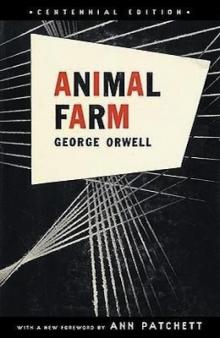 Animal Farm & 1984
Animal Farm & 1984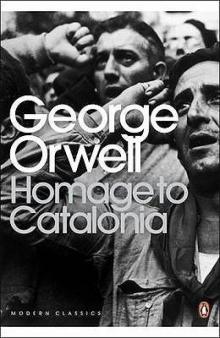 Homage to Catalonia
Homage to Catalonia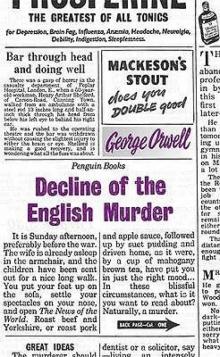 Decline of the English Murder
Decline of the English Murder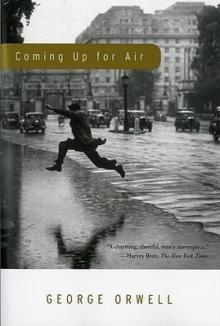 Coming Up for Air
Coming Up for Air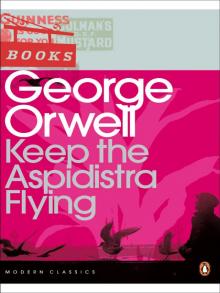 Keep the Aspidistra Flying
Keep the Aspidistra Flying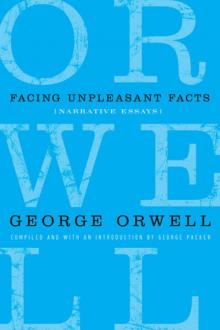 Facing Unpleasant Facts: Narrative Essays
Facing Unpleasant Facts: Narrative Essays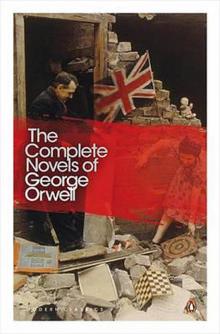 The Complete Novels of George Orwell
The Complete Novels of George Orwell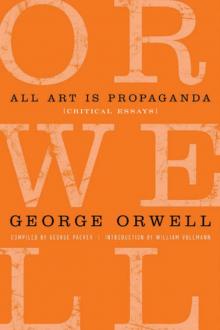 All Art Is Propaganda: Critical Essays
All Art Is Propaganda: Critical Essays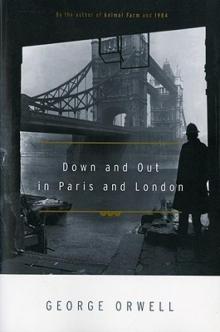 Down and Out in Paris and London
Down and Out in Paris and London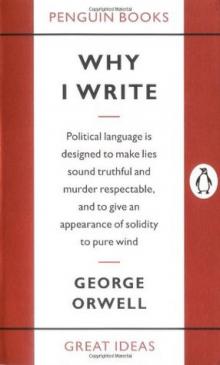 Why I Write
Why I Write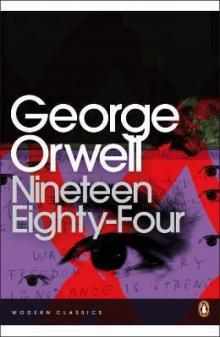 Nineteen Eighty-Four
Nineteen Eighty-Four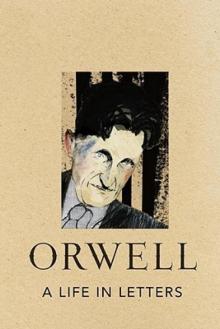 A Life in Letters
A Life in Letters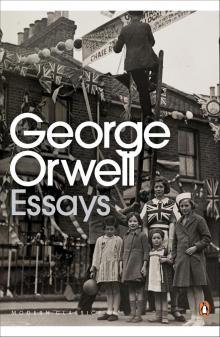 Essays
Essays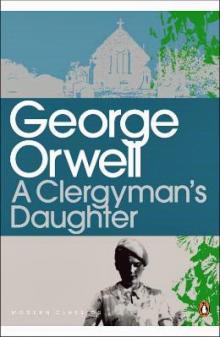 A Clergyman's Daughter
A Clergyman's Daughter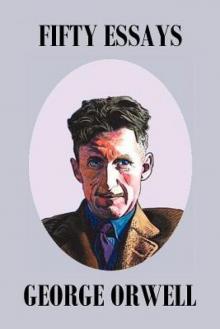 Fifty Orwell Essays
Fifty Orwell Essays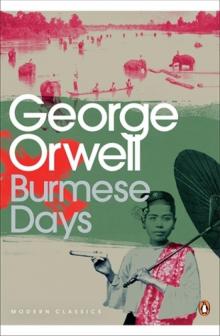 Burmese Days
Burmese Days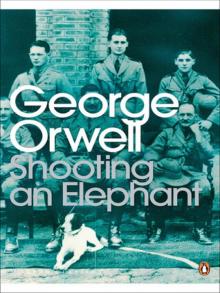 Shooting an Elephant
Shooting an Elephant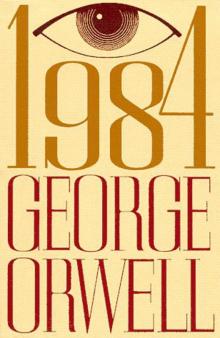 1984 (Penguin)
1984 (Penguin)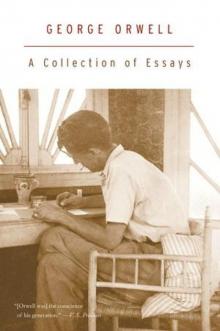 A Collection of Essays
A Collection of Essays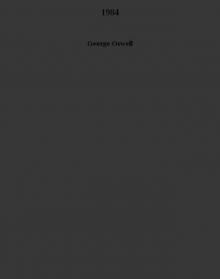 1984
1984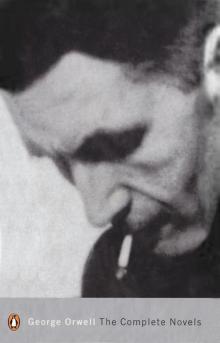 The Complete Novels
The Complete Novels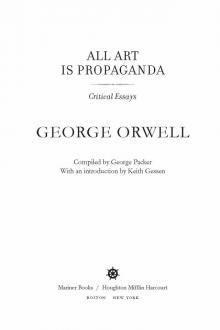 All Art Is Propaganda
All Art Is Propaganda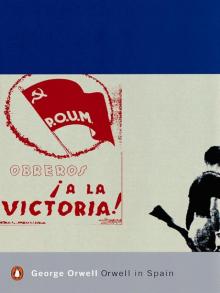 Orwell in Spain
Orwell in Spain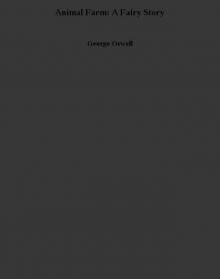 Animal Farm: A Fairy Story
Animal Farm: A Fairy Story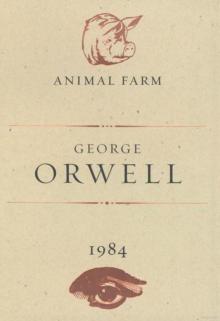 Animal Farm and 1984
Animal Farm and 1984